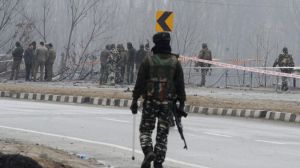Inflation rise may put pressure on interest rates
NEW DELHI, MAY 8: India's wholesale price inflation rate has almost tripled since mid-February but the central bank is unlikely to tighten...

NEW DELHI, MAY 8: India’s wholesale price inflation rate has almost tripled since mid-February but the central bank is unlikely to tighten monetary policy as the core inflation rate is much lower, analysts said on Monday.
The rate has been rising steadily from 2.08 per cent in the week ended February 19. "The rise is due mainly to a long-overdue revision of energy prices," said Saumitra Chaudhari, economist at rating agency ICRA Ltd.
On March 22 the government more than doubled the ex-storage price of kerosene and raised the ex-storage price of liquefied petroleum gas (LPG) by around 23 percent per 14.2 kg cylinder. This meant the index for fuel, power, light and lubricants jumped from 169.3 points in the week ended March 25 to 192 in the week to April 22.
An increase in government-administered prices for items sold through the public distribution system pushed up food prices and also contributed to the higher inflation rate, Chaudhari added. He said a key factor determining central bank monetary policy was the rate of core inflation, which excludes the food and energy sectors. "Food prices depend heavily on cyclical and seasonal factors and energy prices depend on several extraneous and international factors," he said.
"Excluding these two groups – which account for around 15.4 and 14.2 per cent of the WPI index – core inflation is around two per cent," he said. Vasan Shridharan, treasury economist at Standard Chartered Bank in Mumbai, agreed the latest inflation data were unlikely to influence the central bank’s current easy monetary policy.
"Manufacturing inflation is still benign and that is a key factor in determining the central bank’s monetary policy," he said. Both Shridharan and Chaudhari said a change in thecomposition of the WPI basket had also contributed to the rise in the inflation rate.
But the central bank could shift its stance if the drought, which has affected over 50 million people in five states, did not ease and if poor rainfall resulted in higher food prices, analysts warned. "The big question mark is the drought…there are already some forecasts that this year’s monsoon will not be good," Chaudhari said.
The Reserve Bank of India (RBI) in its annual monetary policy statement released in April said it would keep interest rates at levels favourable to economic growth so long as inflation pressures allowed.
Photos





- 01
- 02
- 03
- 04
- 05


























